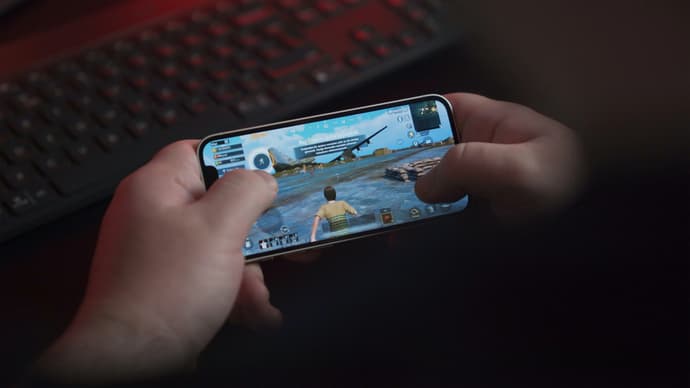Should More Mobile Gaming Titles Be Serious Esports?

Gaming is for me a passion, just like it is for may people. It has evolved from just a mere hobby to a more grand stage. Look at Esposts; I are talking about how games have evolved to be in a more competitive landscape. When I think about Esports, I think of huge PC titles like Valorant or Apex Legends. Many popular mobile titles like PUBG, Mobile Legends, and Arena of Valor, also have their own Esports landscape that is adorned by fans like me. But the big question is: Should more mobile titles be serious Esports?
The Rise of Mobile Esports
First off, I will talk about how mobile esports has already been booming. Titles like Mobile Legends: Bang Bang, PUBG Mobile, and Arena of Valor are not just popular; they’re driving major esports tournaments, especially in regions like Asia and the Middle East. Also, the industry is seeing huge growth, forecasted to grow from $114.96 billion in 2023 to $247.07 billion in 2030.
Why Mobile Esports are Gaining Traction?
Mobile Esports might seem to some like a lazy playstyle, as I once did, but it’s not what it is. In 2022, over half of global esports revenue came from Asia and MENA. The mobile esports industry has a lot of traction from many gamers around the globe due to significant advantages like:
- Mobile devices are far more affordable than high-end PCs or consoles, making them more accessible.
- With the advent of 5G, mobile experiences have become smoother and more reliable. Faster connections mean less lag and more competitiveness.
- In many parts of the world, people primarily use mobile devices for internet access and playing. This has naturally led to a boom in mobile esports.
There are also many review sites like Casino Meister talking about the various impacts of mobile gaming and how it’s useful in gambling and other industries.
Major Mobile Titles Not Yet in The Esports Scene
Let me show you some major mobile titles that are not considered for Esports yet:
Call of Duty: Mobile
I love Call of Duty: Mobile brings the iconic FPS franchise to mobile devices, offering various multiplayer modes and battle royale modes. Despite its potential for competitive play, it hasn't fully broken into the esports scene like its PC and console counterparts.
There are many issues like device compatibility, control precision, and the dominance of the console and PC versions in esports circuits that have limited its growth in competitive Esports.
Among Us
Among Us is a multiplayer social deduction game that was a huge trend back in the day. I like how the gameplay is simple: participants work together to complete tasks on a spaceship while impostors attempt to sabotage and eliminate them.
The play style and everything were great, but one thing made it lag to get into the esports scene. The game is more casual and has a party-like setting, so I reckon that there’s no real scope into getting it to the major Esports scene.
Diablo Immortal
Diablo Immortal is an action RPG (I love the thrill of playing action games) that offer a rich multiuser experience, especially the one in the Diablo universe. While it has a huge fan base, its main focus is on cooperative PvE content over competitive PvP, and coupled with the game's monetization model, it is less suitable for the structured competition required in esports.
The Challenges of Mobile Titles
As seen above, many of these titles lack the main components of more multiplayer facilities, more advanced gameplay styles, more strategies, etc., to make them eligible for Esports. It's true that some of these titles have a lot of fans, but that’s not at all when it comes to Esports. Esports is more like a tournament for business and demonstrating talent, rather than just a simple, casual scene.
There are many other challenges to mobile titles that make it harder for them to make it to the big competitions, such as:
- Control Precision: Mobile titles often rely on touch controls, which can be less precise than the traditional mouse and keyboard or controller setups.
- Network Stability: While advancements like 5G improve this, network stability can still vary significantly, especially in regions with less reliable internet infrastructure.
- Monetization Models: Many popular mobile titles utilize freemium models with in-app purchases and microtransactions. This can lead to "pay-to-win" scenarios where people who spend more money gain competitive advantages.
- Game Design and Complexity: Some are designed for casual, short-burst play rather than the strategic depth required for esports.
- Perception and Legitimacy: There is still a perception that mobile Esports is not as serious or skill-intensive as their PC or console counterparts.
- Infrastructure and Support: The mobile esports ecosystem is still developing. This includes everything from tournament organization and prize pools to sponsorship and media coverage.
The Verdict
In the end, I believe mobile games have the potential to enter the Esports scenes if the necessary adjustments are made. After all, I believe they are meant to have a casual approach since most people enjoy them in their break times, but huge mobile titles like PUBG and Mobile Legends have set the stage for more titles to try their hands in the global Esports area.
My opinion is thT Only time will tell how much advancements can help them reach Esports status.

Elen Stelmakh er en kreativ person, der er dedikeret til at fremme spilkulturen gennem artikler og visuelt design. Som fuldtidsforfatter på EGamersWorld og designer for en gaming-hjemmeside skaber Elen ikke kun indhold, men tilfører det også energi og kreativitet.
 StarRupture Vandsteder og -kilderKæmper du med hydrering på Arcadia-7? Lær, hvordan du får vand i StarRupture ved at finde Hydrobulbs og fremstille avancerede Aqua-genstande.
StarRupture Vandsteder og -kilderKæmper du med hydrering på Arcadia-7? Lær, hvordan du får vand i StarRupture ved at finde Hydrobulbs og fremstille avancerede Aqua-genstande. Sådan bruger du droner i StarRupture: Oplåsning, kontrol og bygningDenne StarRupture-droneguide viser, hvordan du låser op for den vigtige bygningsdrone og automatiserer hele din ressourcepipeline med et effektivt jernbanenetværk, inklusive alle opgraderinger og
Sådan bruger du droner i StarRupture: Oplåsning, kontrol og bygningDenne StarRupture-droneguide viser, hvordan du låser op for den vigtige bygningsdrone og automatiserer hele din ressourcepipeline med et effektivt jernbanenetværk, inklusive alle opgraderinger og Sådan bygger du i StarRupture: Komplet oplåsningsguideMin StarRupture Building Guide beskriver alle oplåsninger og de bedste strategier til at skabe effektive, forsvarlige baser.
Sådan bygger du i StarRupture: Komplet oplåsningsguideMin StarRupture Building Guide beskriver alle oplåsninger og de bedste strategier til at skabe effektive, forsvarlige baser. Sådan laver du håndværk i Hytale: Opskrifter du skal bruge for at begyndeEn komplet guide til Hytale Crafting. Lær om lommehåndværk, arbejdsbænke og alle de vigtige opskrifter for at komme i gang.
Sådan laver du håndværk i Hytale: Opskrifter du skal bruge for at begyndeEn komplet guide til Hytale Crafting. Lær om lommehåndværk, arbejdsbænke og alle de vigtige opskrifter for at komme i gang.

